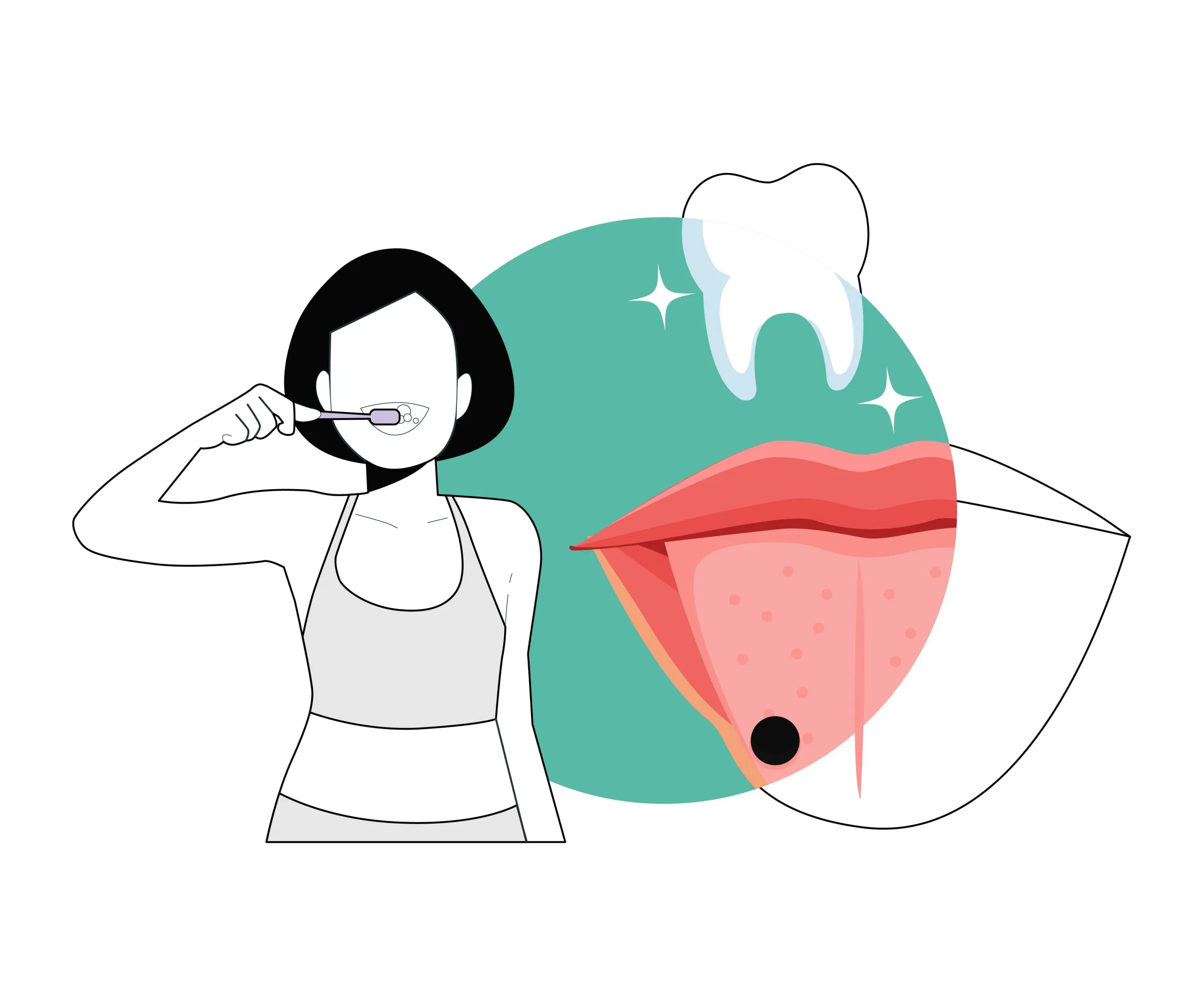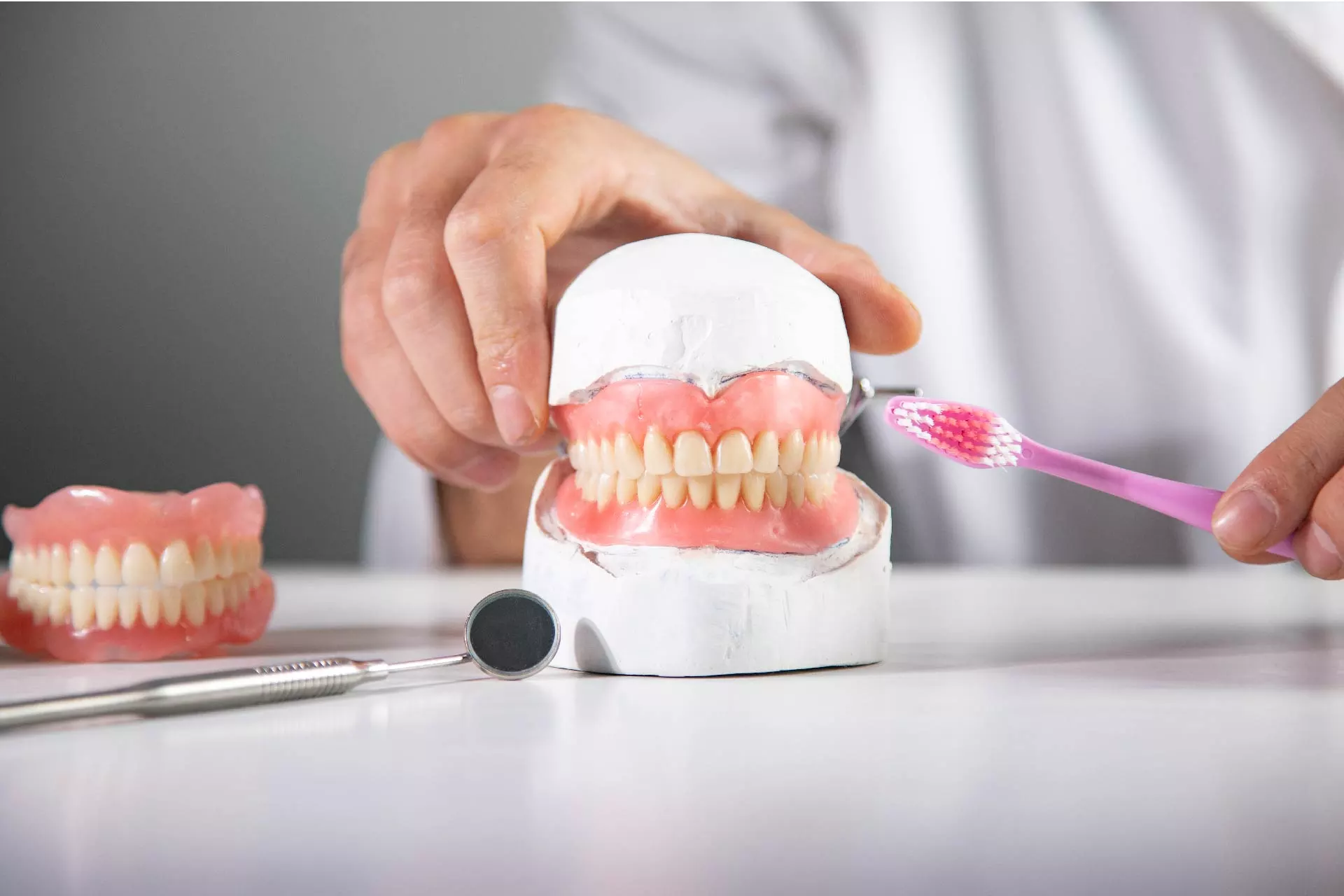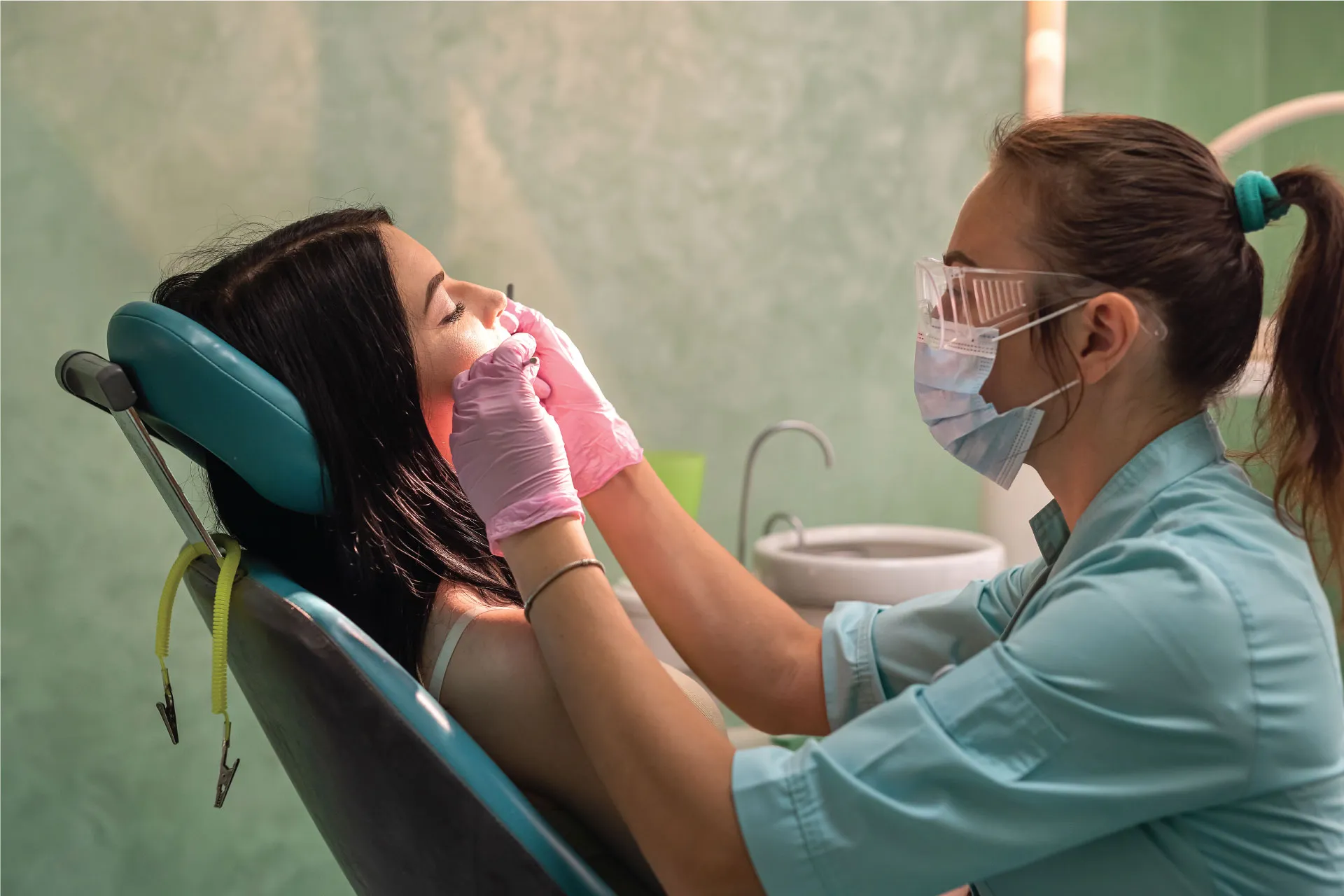Orthodontists | 7 min read
Black Spots on the Tongue: Causes, Symptoms, Diagnosis, and Treatment
Medically reviewed by
Table of Content
Synopsis
Dark spots on the tongue can be disturbing, but they are usually harmless. These black spots may occur due to age or certain lifestyle choices. They frequently resolve them on their own. However, some spots on the tongue may indicate a severe underlying problem that requires immediate medical attention.
Key Takeaways
- Poor dental hygiene or an underlying health condition could cause dots, patches, or black spots on the tongue
- Black patches on the tongue can be easily treated by a doctor or dentist
- Black spots could also be tongue cancer or a symptom of oral cancer
Why Do Black Spots Appear on the Tongue?
The tongue contains numerous small spots for taste and sensation. They are usually not noticeable. However, if the spots are an unusual color, cause irritation, or are accompanied by other symptoms, they may indicate a health problem. Spots, patches, and discoloration on the tongue can be harmless, but they can also be a sign of something serious. Black spots on the tongue can range from tiny dots to conspicuous dark areas that appear particularly alarming. If you notice any black spots on the tongue, consult a dentist or physician for a proper diagnosis.
Causes of Black Spots on the Tongue
Although a black tongue is more common in older people, it can occur at any age. In addition, tongue cancer is more common in men and increases with age. African American men are more likely than Caucasians to develop tongue cancer. The condition may be more common in men than women, but it is more strongly linked to an individual's smoking status and oral hygiene habits.
Often, black spots on the tongue mean poor dental hygiene, but there are other risk factors as well, including:
- Consuming an excessive amount of coffee or tea
- Tobacco consumption
- Drinking too much alcohol
- Several medications
- Several types of mouthwash
- Dehydration
- Use of intravenous drugs
- Oral Cancer
- Trigeminal neuralgia
- Radiation therapy for a weakened immune system
- Mouth dryness
- Periodontitis or gum disease

1. Your Tongue's Natural Appearance
Even if this is the first time you've noticed black spots on your tongue, they could be a natural feature. The tongue is a muscle that is covered in taste buds. It moves food around the mouth as you chew, and taste buds send flavor signals to the brain. Taste buds are visible to the naked eye; they can stand out and appear as dark spots when stained with red wine or coffee.
According to a case study published in the Journal of Community Hospital Internal Medicine Perspectives, black spots on the tongue could indicate a condition known as hyperpigmentation [1]. Pigmentation is responsible for skin color, hair, and eyes, and high concentrations of pigment in the tongue can cause harmless dark spots or patches, sometimes due to chemotherapy. In the case of hyperpigmentation and chemotherapy, the black spots usually fade after a few weeks.
2. Exposure to Chemicals
Sometimes the tongue turns black when some chemicals react with the acids present on the tongue's surface. For example, the color change could be caused by exposure to the chemical bismuth (which is found in some medications). Though the entire tongue often turns black, the change may first appear in patches. Your tongue should return to its normal pink color once you stop taking bismuth.
3. Cracked Tooth Symptoms
A cracked tooth may cause black dots on the tongue. In addition, the tooth may have caused a cut on the tongue, resulting in an infection or discoloration.
Additional read: Cracked Tooth: Causes and Symptoms4. Tongue Injury
Oral piercings and tongue injuries can cause black spots. Damage to the tongue can result in a sore. A black spot on your tongue could be a lingering sign of injury if you recently had an oral piercing or bit, cut, or otherwise injured it.
5. Hairy Tongue
Your tongue's cells are constantly growing. Sometimes, these cells proliferate more quickly than your tongue can eliminate. As a result, these cells can develop into fuzz or hair-like growths as they expand, and as bacteria colonize them, they may take on a brownish or blackish hue. Although a hairy tongue is not harmful, it can be unsightly and cause bad breath.
6. Cancer of the Tongue
In rare cases, dark patches on the tongue can indicate a severe condition such as cancer. The dark spots may also appear as scabs or unhealed sores. Other symptoms of tongue cancer include lumps, swelling, and swallowing difficulties. You should see a doctor immediately if you experience any of these symptoms. Although tongue cancer is a severe disease, treatment is most effective when started early.
If the spots are grey, they may indicate a medical condition known as leukoplakia, which can be precancerous.
Squamous cell carcinoma is the most common type of tongue cancer [2]. It typically manifests as an ulcer or a scab that does not heal. It can appear anywhere on the tongue and may bleed if touched or otherwise traumatized.
Other signs and symptoms of black spots on the tongue include:
- Tongue ache
- Ear discomfort
- Difficulty swallowing
- A lump in the neck or throat
Doctors frequently take a biopsy of tissue samples for microscopic examination when they suspect cancer. Then, depending on the type and stage of cancer, the following types of treatment are available- surgery, chemotherapy, and radiation.
Symptoms of Black Spots on the Tongue
Although the condition's name implies that the tongue becomes black, the discoloration can also be brown, white, or yellow. Typically, the discoloration is concentrated in the center of the tongue.
Other symptoms are not always present in some people. Other symptoms associated with a black tongue include:
- Breath that stinks
- Changes in the flavor of food
- Burning sensation
- The sensation of gagging
- The sensation of tickling
- Nausea
Diagnosis of Black Spots on the Tongue
Doctors and dentists can usually diagnose black tongue simply by looking at you. However, if your doctor has any doubts about the diagnosis, they may order additional tests.
Other tests that may be required include:
- Swabs for bacterial culture
- Scrapings of fungi
Consult your dentist or doctor if you have spots on your tongue that have persisted for over a few weeks and are unsure of the cause.
It is possible to diagnose many tongue lesions and bumps based solely on appearance, including thrush and a black hairy tongue. However, you should discuss any additional symptoms with your doctors, such as pain or lumps in your mouth, neck, or throat. In addition, you should also inform them about the medications and dietary supplements you take.
You should disclose your smoking history and alcohol consumption habits, or if your immune system is compromised and your family cancer history, with your doctor.
While most spots are harmless and go away on their own, spots and bumps on your tongue or anywhere in your mouth can be a sign of cancer.
If your doctor suspects you have tongue cancer, you may need some imaging tests, such as X-rays or PET scans. In addition, a biopsy of the suspicious tissue can help your doctor determine whether or not it is cancerous.
Treatment of Black Spots on Tongue
- Maintaining good oral hygiene can help you avoid a black tongue. Scraping or brushing the tongue can help keep food and bacteria off the tongue's surface. If the spots go away after brushing, they may not require any additional treatment. If the spots persist, see your dentist for a checkup. Avoid substances or medications that are known to cause a black tongue whenever possible.
- Similarly, if the discoloration is caused by something you frequently eat or drink, dietary changes, such as eliminating or limiting your intake of alcohol, coffee, or tea, can be beneficial.
- If you visit your dentist for a black tongue, they may advise you to discontinue using peroxide-containing mouthwashes. Changing formulas may aid in preventing a recurrence of the black tongue.
- Avoiding or changing these things may not always help with a black tongue. In this case, your doctor may recommend an antifungal medication or a retinoid. Laser surgery is required in rare cases to treat the condition.
Prevention of Black Spots on the Tongue
It is impossible to avoid tongue spots altogether. However, there are some ways to reduce your risk, such as:
- Refraining from smoking or chewing tobacco
- Consuming alcohol in moderation
- Getting regular dental checkups
- Reporting unusual tongue and mouth symptoms to your doctor
If you've previously had problems with tongue spots, ask your doctor for special oral care instructions.
Practicing good oral hygiene will also help prevent black patches. Good daily oral hygiene includes the following:
- Cleaning your teeth
- Rinsing and flossing
- Gentle tongue brushing
Although black spots on the tongue are not severe, they aren't comforting. Even if your only symptom is a change in your tongue's appearance, you may be embarrassed about it.
Talk to your doctor or dentist if you have discoloration on your tongue, or book an online doctor consultation with Bajaj Finserv Health. They can usually easily diagnose the condition and assist you in finding the best treatment.
References
- https://sherwoodparkdental.ca/black-spots-on-tongue-causes-treatment-options/#:~:text=Alternatively%2C%20black%20spots%20on%20tongue,as%20a%20result%20of%20chemotherapy.
- https://www.ncbi.nlm.nih.gov/pmc/articles/PMC5305651/#:~:text=Squamous%20cell%20carcinoma%20(SCC)%20of,very%20rarely%20on%20the%20dorsum.
Disclaimer
Please note that this article is solely meant for informational purposes and Bajaj Finserv Health Limited (“BFHL”) does not shoulder any responsibility of the views/advice/information expressed/given by the writer/reviewer/originator. This article should not be considered as a substitute for any medical advice, diagnosis or treatment. Always consult with your trusted physician/qualified healthcare professional to evaluate your medical condition. The above article has been reviewed by a qualified doctor and BFHL is not responsible for any damages for any information or services provided by any third party.






